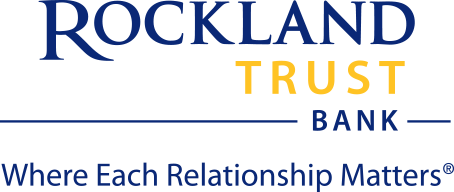Peanut butter and jelly go together. Affordable housing and Massachusetts do not. Out of 50 states, the Commonwealth ranks 44th in housing affordability.
But that doesn’t mean affordable housing opportunities don’t exist here. You just have to know where to find the peanut butter, where to get the jelly, and then you’ll make the perfect sandwich.
It’s easier than it sounds. A three-year-old government tax program that has won near unanimous support across the political spectrum as well as from business, industry, and the general public is called the Community Investment Tax Credit, or CITC. This is a way for those with financial means to help those without, while also reducing their own tax burden.
It’s too late to take advantage for this tax season, with April 15 around the corner, but not too late to be thinking about next year.
How does it work? A donor who gives $10,000, for example, can receive both a 50 percent credit from the state and a federal tax deduction on the full amount of the donation, saving them as much as $3,500 off their federal tax return and leaving a final out-of-pocket donation of as little as $1,500, depending on the donor’s tax bracket. That means up to 85 percent of the gift could be returned to the donor as a credit. There is a minimum donation of $1,000 for a $500 credit.
But it’s not just a tax break for the well-heeled and big corporations. The CITC is available to individuals, non-profits, and foundations with a minimum $1,000 donation.
And it’s working. Through this relatively little-known tax and investment incentive, more than 4,000 taxpayers from Boston to the Berkshires have doubled the impact of their philanthropy toward affordable housing, neighborhood improvement, and economic opportunities for families.
“The first time I heard about it I thought this can’t be true, and I’m a tax advisor,” said George Neble, managing partner for Ernst & Young and an executive committee member for the United Way of Massachusetts Bay, which has become a major facilitator and proponent for the CITC. “Why haven’t more people heard about this?”
Passed and signed into law in 2014 with the goal of attracting private investment in community development corporations, which are traditionally engaged in improving low-income neighborhoods and providing affordable housing, the CITC stands apart from other tax breaks and incentives for its generous refundable tax credits.
In its first two years, the credits generated nearly $13 million in credits and with significant donations coming from individuals. Figures for 2016 aren’t fully available, but state officials say it appears donations jumped to $10.5 million from 1,900 donors.
“It’s transforming neighborhoods and communities and the more people find out about it, I think the numbers could go even higher,” said Neble.
There’s a reason it’s so important. With Massachusetts ranking so low in affordable housing, any dent in rising housing rates by programs like CITC is widely welcomed.
“Many people need help in keeping their homes, what with rent and rising costs,” said Neble. “While each CDC has a different charter and mission, housing is big issue.”
An evaluation of the CITC program by Next Street Financial and Ann Donner Consulting found that it “achieved meaningful fundraising success in its first two years,” but didn’t reach its full potential, raising $12.9 million out of a potential $18 million.
But donations grew 70 percent between year one and two, and another 30 percent last year.
“Most of the donors are new,” said Joe Kriesberg, president of the Massachusetts Association of Community Development Corporations. “But we’re also seeing people double and triple their donations from year to year as they realize the overall benefits of this program.”
Overall, businesses have donated the most, representing $5.5 million of the roughly $13 million total the first two years. However, individuals donated nearly as much — $5 million — with other donations coming from foundations and non-profits.
The United Way of Massachusetts Bay has helped shepherd donations through CITC, raising more than $2.4 million to help build more than 600 new affordable housing units, prevented 1,300 foreclosures, and provided more than 11,600 individuals with financial coaching and education to help them build savings, reduce debt, and improve their credit scores.
Companies that offer United Way matching contributions to employees can designate donations to CDCs, a feature that has been able to attract hundreds of new donors.
“It’s a great initiative that provides an incremental financial benefit to the contributor,” Neble said.
The CITC program is set to expire in 2019, but there are already efforts underway to extend it through 2025, thanks to one enthusiastic supporter: Gov. Charlie Baker. “The more people who embrace it, the better it will be,” Neble said.






